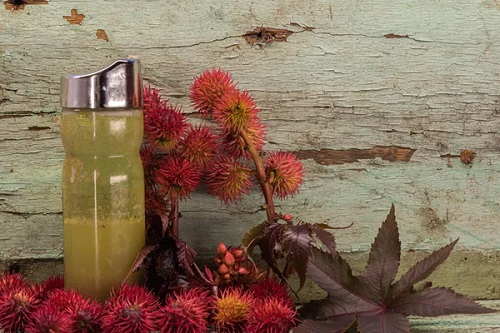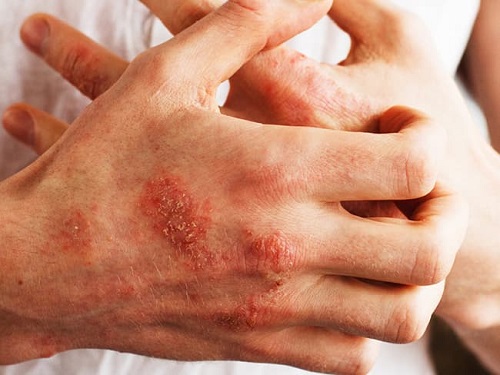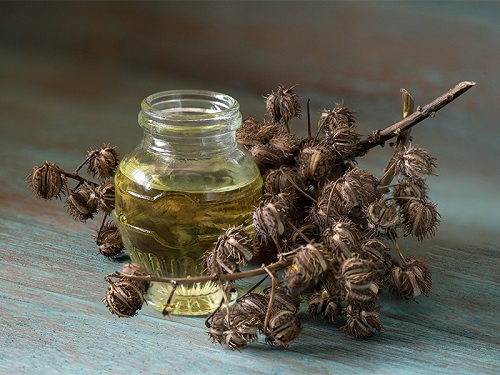Uncover the science, benefits, and limitations behind the question, “Is Castor Oil Anti-Fungal?” and embrace this powerful home remedy!
In the world of home remedies, one name stands out—castor oil. But what if we told you it’s not just any oil? Castor oil is a powerhouse with a reputation for combating fungal issues. So if you are curious to confirm—Is Castor Oil Anti-Fungal?, this article has all the answers!
Learn about the Effectiveness of Castor Oil for Eczema here
Understanding Fungal Infections
Fungi are microorganisms that exist naturally in our environment, including on the human body. However, when there is an imbalance or a weakened immune system, certain types of fungi can proliferate, leading to infections.
According to the Centers for Disease Control and Prevention (CDC), common types of fungal infections include athlete’s foot, ringworm, and yeast infections like candidiasis. These infections can occur on various parts of the body, including the skin, nails, and internal organs.
While most fungal infections are superficial and easily treatable with antifungal medications, some can be more severe, particularly for individuals with compromised immune systems. For instance, invasive fungal infections like aspergillosis can affect the lungs and even spread to other parts of the body, posing serious health risks.
Factors like humidity, personal hygiene, and underlying health conditions can also influence susceptibility to fungal infections. Therefore, understanding what fungal infections are, how they spread, and how they affect you can make all the difference in treating and preventing them.
Have a look at the Benefits of Castor Oil for Toothache here
Is Castor Oil Anti Fungal?
If you’ve heard that castor oil might work as an antifungal and you’re wondering if that’s true, you’re not alone. Castor oil comes from the seeds of the Ricinus communis plant and has been a go-to remedy for various conditions for years. But what does science say about its antifungal properties?
Good news—there’s actual research backing this up. A study in the Journal of Medicinal Food found that castor oil’s active component, ricinoleic acid, successfully inhibited the growth of Candida albicans, a common fungus.
That said, while castor oil shows promise, it’s not a substitute for professional antifungal medications. So, is castor oil anti-fungal? Based on existing research, the answer leans toward yes. However, if you’re dealing with a serious fungal issue, consult a healthcare professional for the most effective treatment.
Learn about Using Jojoba Oil for Nails here
How Does Castor Oil Work Against Fungal Infections?
Understanding the mechanisms behind how castor oil combats fungal infections will help you appreciate its potential as a natural antifungal remedy. Let’s delve deeper into the specific ways in which castor oil works against fungal infections:
1. Disruption of Fungal Cell Membranes
Ricinoleic acid, the star component in castor oil, is the primary player in disrupting fungal infections. When castor oil is applied to the affected area, the ricinoleic acid penetrates the fungal cells, interfering with the integrity of their cell membranes.
This interference causes structural damage to the fungal cells, rendering them vulnerable and less capable of performing their essential functions.
2. Inhibition of Growth
Castor oil’s antifungal properties extend to inhibiting the growth and replication of fungal colonies. Fungi depend on cell division and proliferation to establish and spread infections.
By hindering this growth, castor oil acts as a natural growth regulator for fungal organisms. This inhibition is instrumental in containing and eventually eliminating the infection.
3. Anti-Inflammatory Properties
Fungal infections often induce inflammation, leading to redness, swelling, and discomfort. Castor oil’s anti-inflammatory properties can alleviate these symptoms, providing relief.
The reduction of inflammation helps create an environment where the body’s immune system can more effectively target and combat the fungal infection.
4. Moisturization and Skin Barrier Enhancement
Castor oil’s moisturizing effect plays a dual role in fighting fungal infections. It helps soothe dry, irritated skin, which can be more susceptible to fungal overgrowth.
Furthermore, by hydrating the skin, castor oil can reinforce the skin’s natural barrier function, making it harder for fungi to penetrate and establish themselves.
5. Potential Impact on Biofilms
Fungi can form biofilms, which are protective communities of microorganisms encased in a slimy matrix. Biofilms enhance fungal resistance to treatment. Castor oil possesses potential to disrupt these biofilms, making the fungal colonies more vulnerable to treatment and the body’s immune response.
It’s important to note that while castor oil’s antifungal properties are promising, results can vary from person to person and depend on the severity of the infection. However, for persistent or severe cases, consulting a healthcare professional is advised.
Learn about the Smell and Texture of Castor Oil here
How to Use Castor Oil for Fungal Infections?
1. Castor Oil for Skin Fungal Infections
Combatting Ringworm: Suffering from those itchy, circular rashes known as ringworm? Castor oil could be your friend here. Just make sure to clean the rash area, pat it dry, and then gently apply some castor oil. Its antifungal abilities may offer you some much-needed relief from itching and redness. Do a patch test first and stop using it if you notice any skin irritation.
Tackling Athlete’s Foot: Got itchy feet from athlete’s foot? Rub some castor oil into the inflamed skin, focusing on the toe gaps. This natural remedy can help soothe the itch and diminish the annoying scaling. Consistency is key, so keep at it for best results.
2. Castor Oil for Fungal Nail Infection (Onychomycosis)
Dealing with persistent nail fungus? Castor oil could be an add-on to your treatment strategy. Rub it into the problematic nails and surrounding skin. Its antifungal traits could help curb the fungal growth, but don’t expect overnight miracles. Be prepared for a long haul, as improvement could take months.
3. Castor Oil for Scalp Fungal Infections
Whether it’s the common dandruff or the more serious fungal folliculitis, castor oil might offer some relief. For simple dandruff issues, massage a bit of the oil into your scalp before shampooing. This can help lessen the flaking and itchiness.
If you’re dealing with fungal folliculitis, however, it’s best to get medical advice for a full treatment regimen.
Have a glance at Castor Oil for Sinus Headaches here
Conclusion
So, Is Castor Oil Anti-Fungal? It definitely, is.
Castor oil’s potential as an antifungal agent is backed by scientific research, showing promise in addressing fungal skin conditions like ringworm and athlete’s foot, as well as aiding in the management of fungal nail infections. Its versatility even extends to soothing scalp issues like dandruff.
However, while castor oil can be a valuable addition to your natural remedy toolkit, it should complement, not replace, professional medical advice and treatment for severe fungal infections.
Learn whether Castor Oil is Better in a Glass Bottle or Plastic Bottle here
FAQs
1. Can Castor Oil Be Used For All Types Of Fungal Infections?
Castor oil is generally recommended for superficial fungal infections that affect the skin, such as ringworm or athlete’s foot. It may not be as effective for internal or systemic fungal infections. Consult a healthcare professional for appropriate treatment options for different types of fungal infections.
2. How Long Does It Typically Take To See Results When Using Castor Oil For Fungal Infections?
The time it takes to see results can vary from person to person and depends on the severity of the infection. Some individuals may experience improvement within a few weeks, while others may require several months of consistent use. Patience and consistency are key.
3. Are There Any Potential Side Effects Or Skin Reactions To Using Castor Oil For Fungal Infections?
Castor oil is generally considered safe for topical use. However, some individuals may experience mild skin irritation or allergies. Perform a patch test on a small area of skin before using castor oil extensively to check for any adverse reactions.
4. Can I Use Castor Oil In Combination With Other Antifungal Treatments?
It’s possible to use castor oil in conjunction with other antifungal treatments, but it’s advisable to consult a healthcare professional or dermatologist for guidance. They can provide recommendations on how to integrate castor oil into your overall treatment plan and ensure its compatibility with other medications or therapies.





